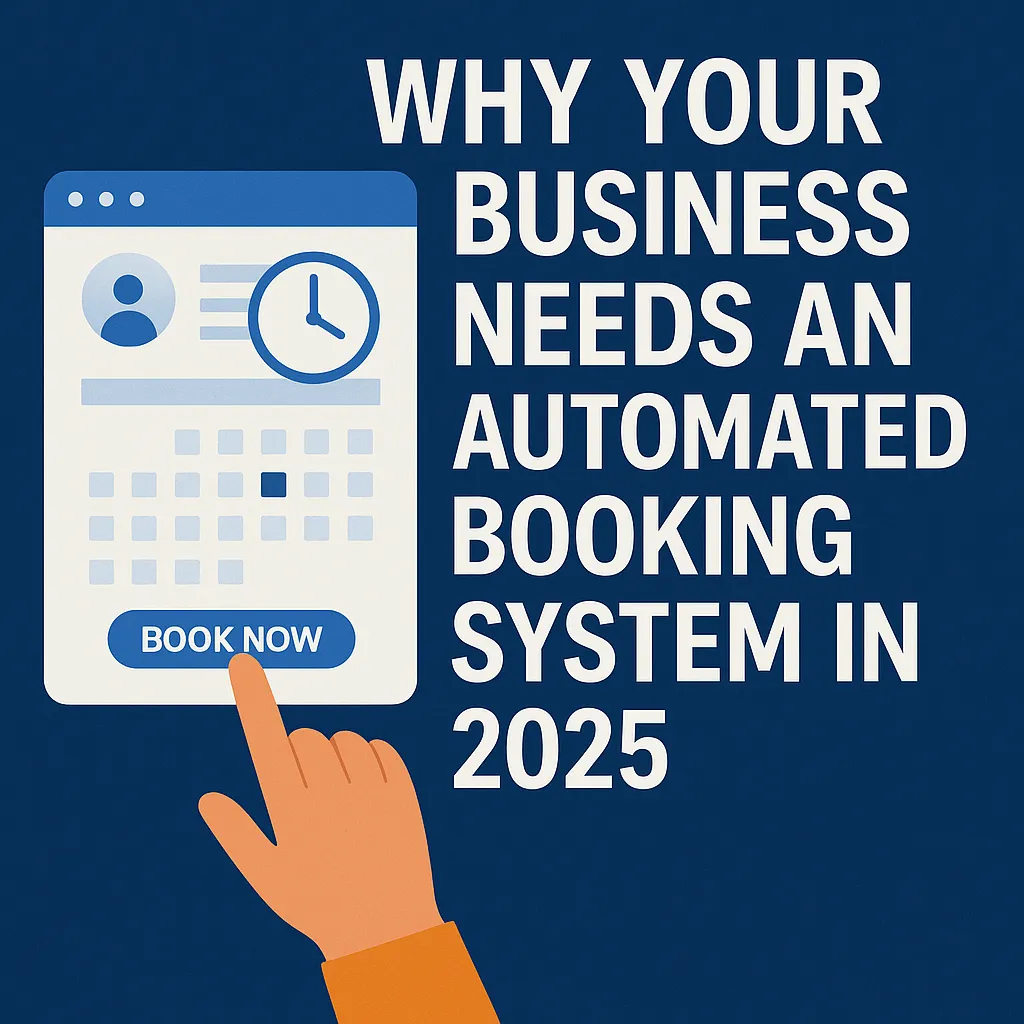
Why Your Business Needs an Automated Booking System
Why Your Business Needs an Automated Booking System in 2025
Title: Why Your Business Needs an Automated Booking System in 2025
Meta Description: Discover how implementing an automated booking system can streamline operations, reduce no‑shows, and boost customer satisfaction. Learn key benefits, implementation strategies, and industry‑specific use cases for 2025.
Introduction
In today’s always‑on, fast‑paced digital economy, customers expect speed, convenience, and instant access to the services they need. Studies show that over 70% of consumers prefer to make appointments or reservations online—and they’re far more likely to choose businesses that offer this convenience. If you’re still managing your bookings with sticky notes, spreadsheets, or back‑and‑forth emails, it’s time to rethink your strategy.
Automated booking systems have become a cornerstone of modern business operations in 2025, helping companies save time, reduce errors, and improve customer satisfaction. In this comprehensive guide, you’ll discover exactly why your business needs an automated booking system, how it can transform your operations, and actionable steps to implement it effectively.
What Is an Automated Booking System?
An automated booking system is software that allows customers to schedule appointments, make reservations, or book services online without manual intervention. Key features include:
Real‑time availability display – customers see up‑to‑date open slots
Calendar synchronization – integrates with staff or resource calendars
Automated confirmations and reminders – via email or SMS
Online payments and deposits – secure transaction processing
Customer data capture – builds your CRM automatically
Reporting and analytics – insights into booking trends and performance
Historically, bookings were managed via phone calls, emails, or in‑person requests—methods prone to human error and missed opportunities. Automation solves these challenges by handling the entire lifecycle, from initial booking through reminders and follow‑ups.
Why Automated Booking Matters in 2025
Professionalism and Convenience
Offering 24/7 online booking positions your brand as modern and customer‑focused. Clients appreciate being able to schedule on their own terms, without waiting for office hours.Increased Revenue and Conversions
Removing friction from the booking process can boost conversion rates by up to 30%. Impulse bookings captured outside business hours translate directly to higher revenue.Reduced No‑Shows
Automated confirmation messages and reminder notifications significantly lower missed appointments, ensuring your team’s time and revenue are protected.Operational Efficiency
By automating repetitive tasks—calendar updates, reminder emails, payment processing—your staff can focus on delivering exceptional service and growing the business.Data‑Driven Decisions
Integrated analytics dashboards reveal peak booking times, service demand, cancellation rates, and staff utilization, enabling smarter staffing and marketing decisions.
Key Benefits Across Industries
Hospitality & Hotels: Direct booking reduces dependency on third‑party platforms, protects margins, and enables dynamic pricing.
Healthcare & Wellness: Clinics and spas see a drop in administrative workload and an uptick in patient or client satisfaction.
Service Providers: Salons, coaching agencies, and consultancies benefit from clearer schedules, fewer conflicts, and better resource allocation.
Education & Training: Class registrations and workshop enrollments become seamless, and waitlists can be automatically managed.
Effective Implementation Strategies
Choose the Right Platform
Select a flexible, all‑in‑one solution—such as Go HighLevel—that combines booking, CRM, automation, and payment processing.Customize to Your Workflow
Map the customer journey from discovery to confirmation. Tailor booking forms, fields, and notification schedules to match your services and policies.Integrate Calendars and Staff Rosters
Ensure real‑time synchronization with Google Calendar, Outlook, or other calendar systems to prevent double bookings and scheduling conflicts.Design Automated Communication Flows
Set up branded confirmation emails, SMS reminders, and follow‑up surveys. Include rescheduling and cancellation links to empower clients and reduce support inquiries.Train Your Team and Test Thoroughly
Provide staff with training on the new system. Run internal tests—bookings, cancellations, payments—to confirm every scenario behaves as expected.Monitor Performance and Iterate
Use built‑in analytics to track KPIs such as booking volume, no‑show rate, and average lead time. Refine your booking rules and notification cadence based on real‑world data.
Common Mistakes to Avoid
Overcomplicating the Booking Form: Too many fields deter clients. Only collect essential information.
Ignoring Mobile Experience: Ensure the booking interface is fully responsive and intuitive on smartphones.
Skipping Staff Training: Without proper training, team members may undermine the system or fail to leverage its full capabilities.
Neglecting Data Privacy: Comply with GDPR, CCPA, and industry‑specific regulations. Be transparent about what data you collect and how you use it.
Future Trends in Booking Automation
AI‑Driven Predictive Scheduling: Systems anticipate optimal appointment slots based on historical behavior.
Chatbot Integrations: Real‑time booking through conversational interfaces on your website or messaging apps.
Voice Assistant Booking: Enabling customers to schedule via Alexa, Google Assistant, or Siri.
Smart Waitlists and Overbooking Algorithms: Maximize capacity while minimizing the impact of last‑minute cancellations.
Frequently Asked Questions
Q: How much does an automated booking system cost?
A: Pricing varies by platform and feature set. Basic plans start around $20–$50 per month; advanced systems with CRM integration and analytics can range from $100 to $500+ per month.
Q: Can automated booking handle group appointments or recurring sessions?
A: Yes. Most modern systems support multi‑seat bookings, class scheduling, and recurring appointment templates.
Q: How quickly can I implement a new booking system?
A: Simple setups can go live in a day or two. Complex integrations—syncing multiple calendars, custom fields, payment gateways—may take one to two weeks.
Next Steps
Evaluate Your Needs: Audit your current booking process and identify pain points.
Select a Solution: Compare platforms based on features, integrations, and cost.
Plan Your Rollout: Define timelines, responsibilities, and communication plans.
Launch and Promote: Update your website, email signatures, and social channels to highlight online booking.
Review and Optimize: Monitor metrics monthly and refine settings to maximize efficiency and customer satisfaction.
By embracing an automated booking system, you’ll not only streamline your operations but also deliver the convenience today’s customers demand—transforming booking from a hurdle into a competitive advantage.
